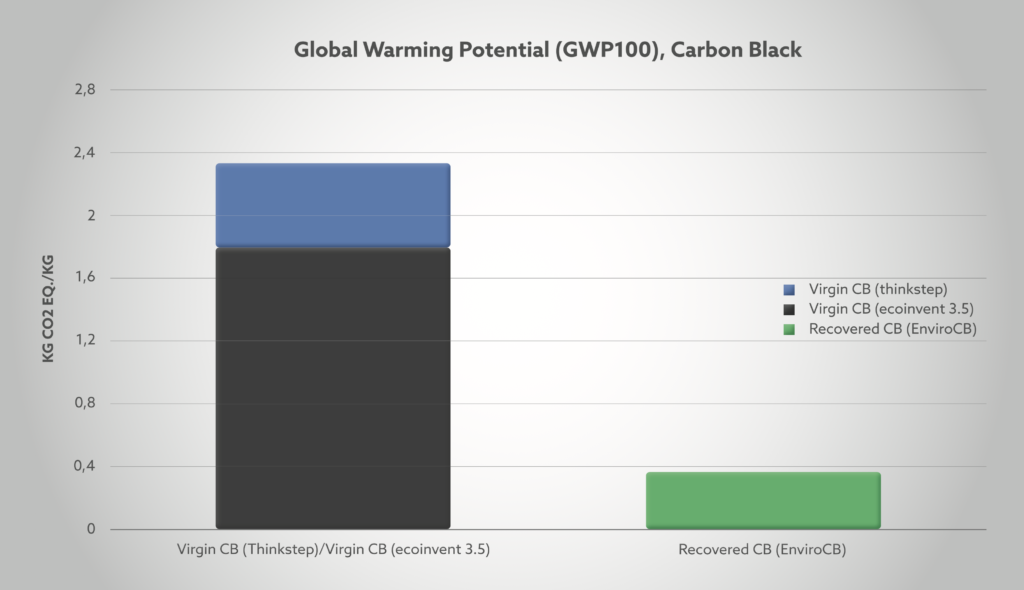The IVL Swedish Environmental Research Institute has carried out a lifecycle analysis (LCA) of Enviro’s recovered carbon black (RCB), and the other materials that are extracted through the company’s pyrolysis process – oil, steel and gas.
The central purpose of the analysis was to obtain a view of the market for these materials and their environmental impact. The results show, among other things, that for 1kg of recovered carbon black that replaces virgin carbon black, total emissions are reduced by 1.43-2kg of CO₂.
“Enviro’s recovered carbon black provides the tire, rubber and plastic industries with a fantastic opportunity to introduce a recyclable material that heavily reduces the industry’s environmental impact. The other recycled materials – oil, steel and gas – provide a further reduction in greenhouse gas emissions.”
One of the indexes used is Global Warming Potential (GWP), which makes it possible to compare the greenhouse effect for greenhouse gases at a joint scale to the greenhouse effect for carbon dioxide (see graph).
“If the 9,000 metric tonnes of recovered carbon black produced by one of Enviro’s plants in a year were to replace virgin carbon black, the resulting reduction in greenhouse gas emissions would be 12,900-18,000 tonnes, which corresponds to more than 40,000 single-leg flights from Stockholm to New York. In addition to this, we have emission reductions combined with recycled oil, gas and steel.”
More stringent laws globally are leading to an increased interest in Enviro’s RCB and its other recycled materials (oil, steel and gas), and the company’s plant facilities.
“The carbon black market is expected to grow by about 8.8% annually in the coming years, and the demand for Enviro’s recycled materials will increase accordingly.
These two driving forces are the basis for Enviro’s changed business model, which involves partial ownership of future plant facilities, allowing us to better capitalize on the company’s leading position.”




